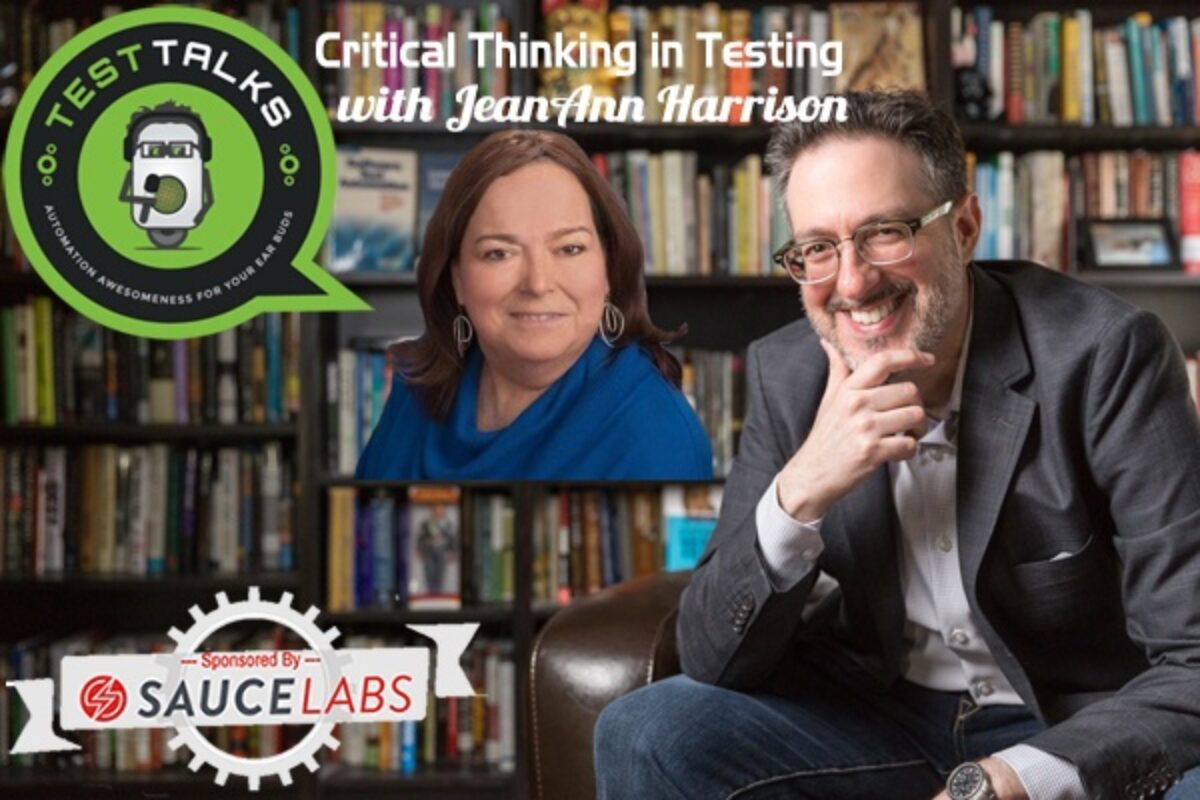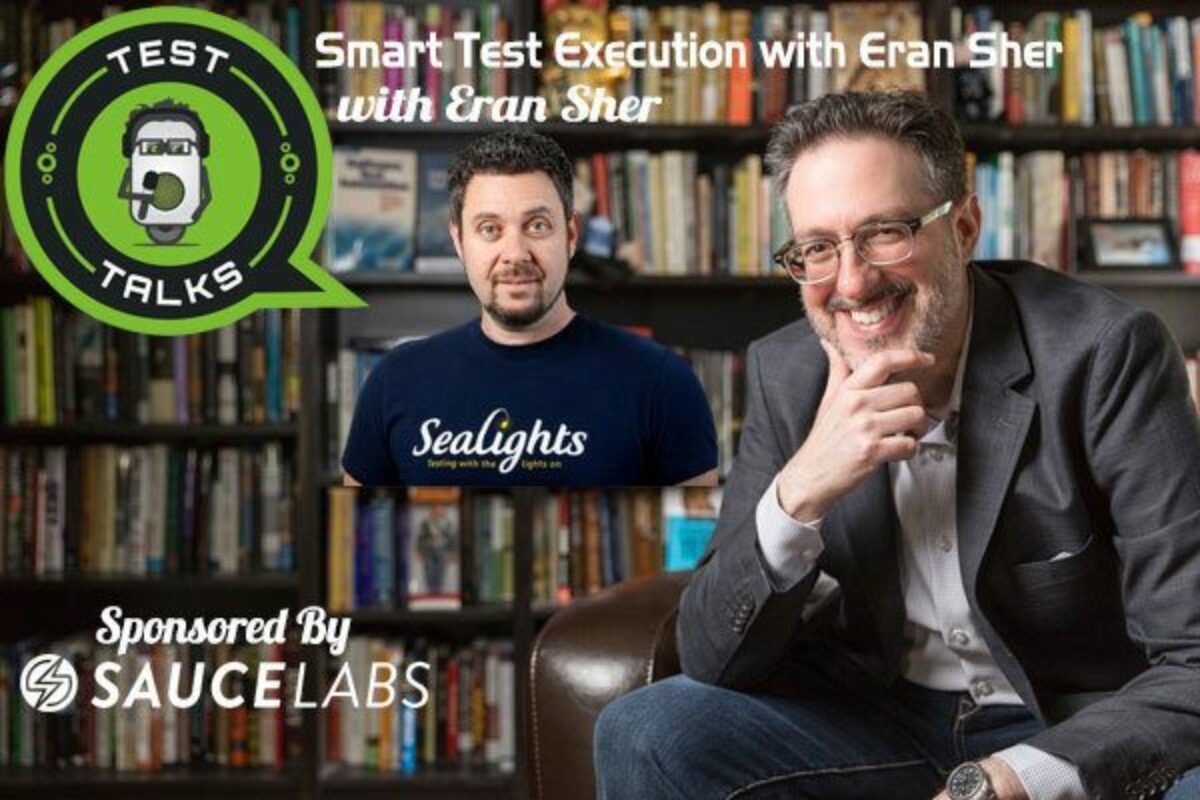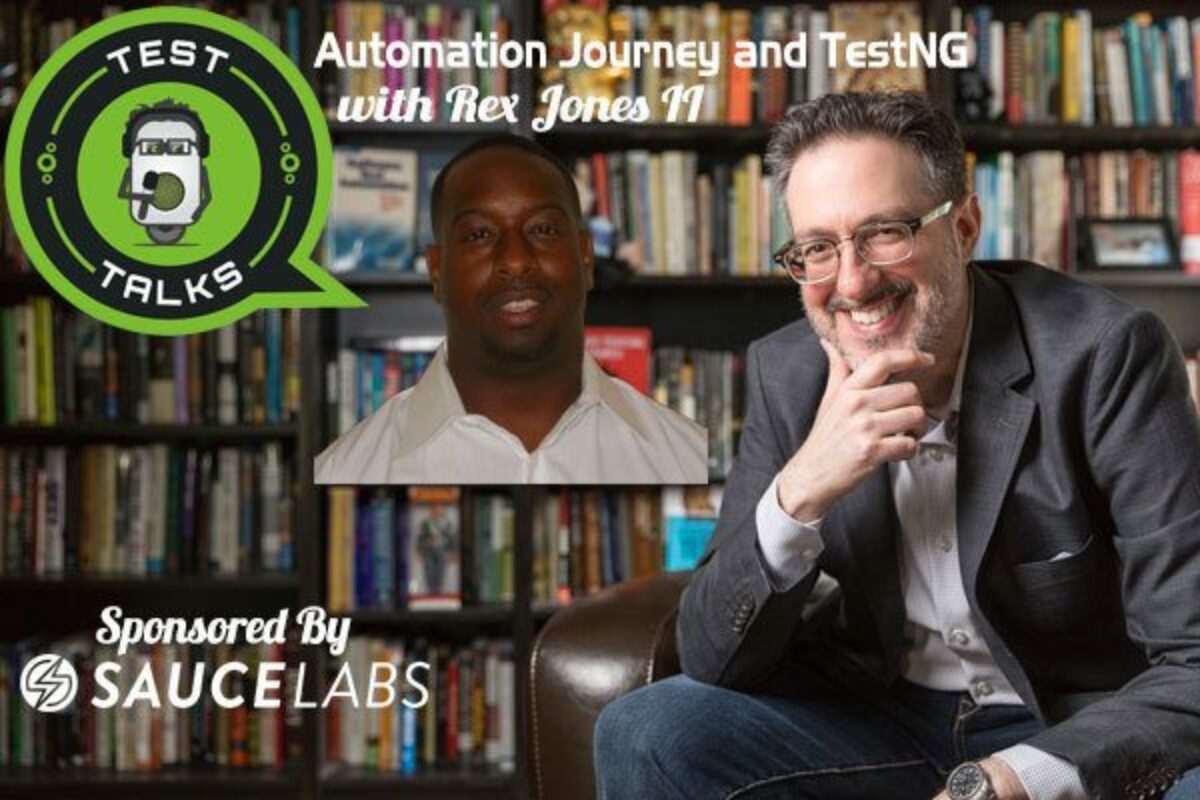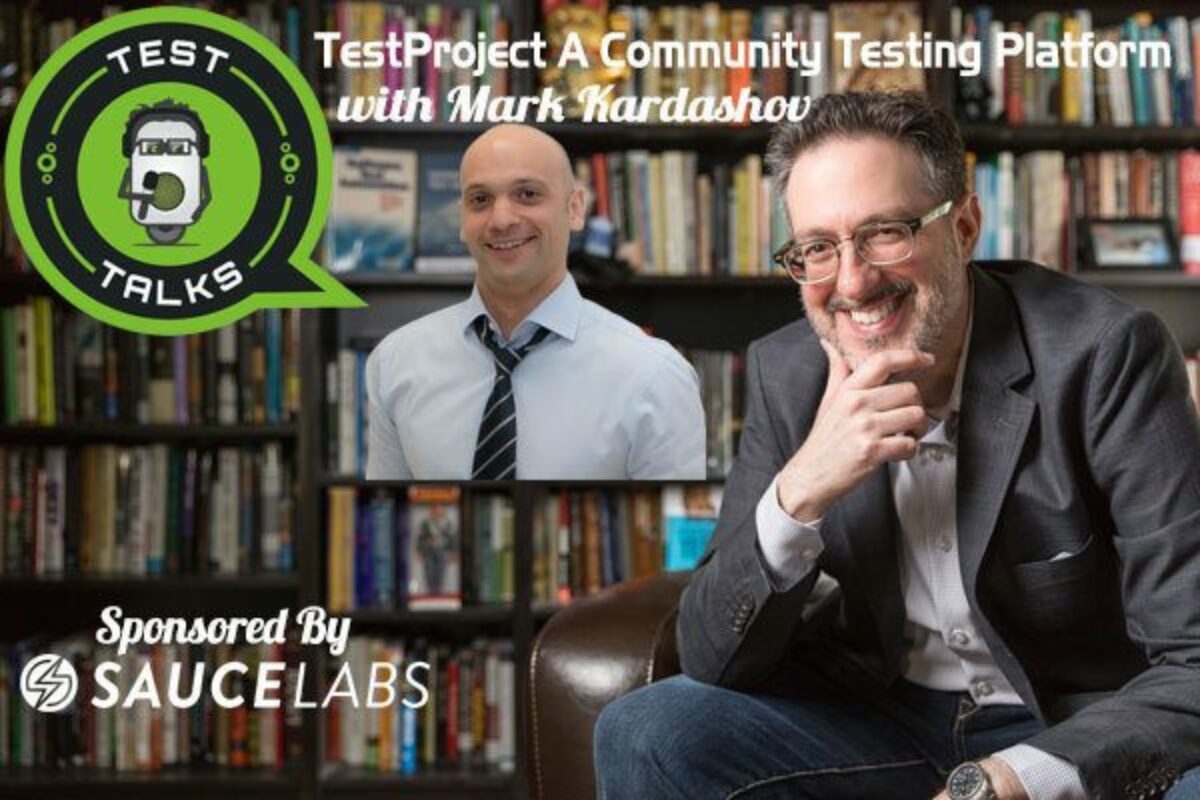Automation testing is awesome. But sometimes using a little old fashioned critical thinking is the only thing way you can achieve a test that actually finds the bugs in your application. In this episode, JeanAnn Harrison will share how critical thinking has aided her in her testing efforts, and how she has applied it throughout her long and successful career. You're going to discover some great techniques as well as some questions to ask yourself when creating your tests in order to identify risk areas and hard-to-find bugs. So listen up and prepare to level up your test-thinking skills!
About JeanAnn Harrison

![]()
Jean Ann has been Software Testing and Quality Assurance field for almost 2 decades including 10 years as a mobile software tester. She is a globally recognized a mobile testing software specialist, mentor, trainer, writer, and public speaker.
Jean Ann's software testing experience covers various industry domains to include medical diagnostic tools, surgical tools, healthcare facilities and insurance, law enforcement, publishing, and the film industry. Testing environments include multi-tiered applications in a strict Waterfall software development life cycle to a medical device regulated environment in a hybrid of Iterative and Agile software development life cycles. Testing includes client/server applications, websites, databases, and mainframe records. Mobile apps testing on a proprietary device for police use, medical device diagnostic use, and surgical use. Non-proprietary device apps include financial use, business use, and games.
Jean Ann is a consistent speaker at various software testing conferences. She actively mentors, conducts training and workshop sessions, publishes webinars, participates in podcasts, reviews and contributes to several books.
Jean Ann is a graduate of St. Anselm College with a Bachelor of Arts degree in Political Science.
Quotes & Insights from this Test Talk
- Automation is great. And a lot of people think I hate automation which is so untrue. I love automation. The problem is is that to do this kind of testing to think about ideas of testing it's not necessarily the way to go.
- I gave my team a specific exercise to conduct come up with a theory of testing that particular product but not using the actual product and instead of coming up with different thought processes that they can apply to the exercise. And it was hard for them and I just thought wow maybe it's because of all my practice of all the years I had all the training I had but it's not easy I found to do. Even though I think it's easy but I'm constantly trying to push myself to think of different ways of looking at something and I think that's really important for a tester is to look at things in a different way as many ways as you can come up with. And I think that's really important for critical thinking exercises.
- I would say to them maybe look at something outside of testing outside of what you're working on. And that's really important to understand. Having a different perspective. That is really important in testing as you know. It's so important to look at something completely different. And when you do that that's when you become inspired.
- Critical thinking is something I've been practicing practically in my whole life and it really helped me when it came to testing the medical devices. So that I looked at the device and I would look at it from more than just the device itself for the purpose of what it was supposed to do. But how it was used. Or how it could be used And that's what you start asking questions. One of the things that you might want to do is ask the simple questions of why, how, when and where. Those are very important questions to ask.
- The where, the when are really critical questions and people don't always think to do that. And they don't think about systems. They think just about the software that appears on the screen and that's something where we as testers we have to pull ourselves out of that mode and start thinking about the questions and come up with different questions to think about tests. Because eventually, the questions are going to lead to tests you're going to you're going to be inspired by well What if? And that's really the bottom line for testers is to ask that question what if.
- As far as a piece of advice about critical thinking what I would suggest is that when you look at anything. It could be nature. Come up with different ways of looking at that object, item, whatever, situation, scenario come up with a different way to look at it and to think about it. Then ask yourself questions. The how's? The where's? The When? The Whys. Who? Who would benefit from it? Who would not benefit from it? Those kinds of things are what inspire me and I really do focus on my questions. And when I do that that's when ideas start coming really strong. So really focus I think on the why and the where and when I think those are the really important questions when it comes to testing.
Connect with JeanAnn Harrison
- Twitter: @JA_Harrison
- LinkedIn: jeanann-harrison-865b554
- Company: Thales
May I Ask You For a Favor?
Thanks again for listening to the show. If it has helped you in any way, shape or form, please share it using the social media buttons you see on the page.
Additionally, reviews for the podcast on iTunes are extremely helpful and greatly appreciated! They do matter in the rankings of the show and I read each and every one of them.

Test Talks is sponsored by the fantastic folks at Sauce Labs. Try it for free today!





